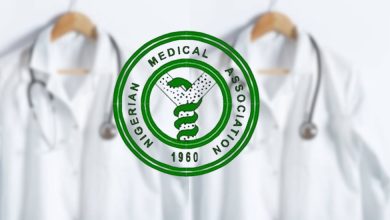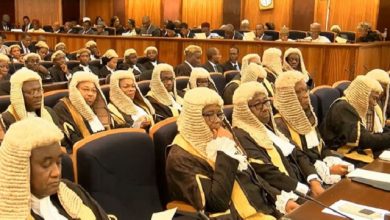Metro
Lifestyle, poor healthcare, ignorance fuel sudden deaths in Nigeria – Cardiologist

A Professor of Cardiology, Rt. Rev. Samuel Ike, has identified lifestyle choices, limited access to healthcare, and ignorance of critical warning signs as the primary contributors to the alarming rate of sudden deaths in Nigeria.
Ike, who is also the Anglican Bishop of Enugu Diocese, made this assertion during a Public Lecture titled, “The Menace of Sudden Death In Our Society: What Can We Do?”
The lecture, which was organised by the College of Medicine, Enugu State University of Science and Technology (ESUT) in collaboration with Enugu State, held on Monday in Enugu.
The News Agency of Nigeria (NAN) reports that the lecture aims to enlighten the public on the increasing frequency of sudden deaths, emphasising preventive measures and post-management strategies to reverse the trend.
The cardiologist noted that by personalising foreign diets over the local foods, we opened door to diseases that came with such diets.
He urged Nigerians to avoid junk foods and consume more of fruits and vegetables.
The cardiologist explained that sudden cardiac death was a natural death from cardiac (heart) causes resulting from an abrupt loss of consciousness within one hour of acute symptoms.
He stated that the key elements involved are “prodromes, acute cardiovascular collapse, cardiac arrest and biological deaths”.
According to him, the symptoms include “difficulty in breathing, irregular heartbeat and and chest pain”, while “acute cardiovascular collapse can be reversed if appropriate intervention is applied”.
“If a patient has pains in the arm and left side of chest, there is a threat of death and I advise people to always check their pulses and get a weighing scale to check their weight regularly .
“Our lifestyles such as smoking, hard drugs and alcohol consumption, lack of exercise, rigorous exercises like weight lifting ,press-up, are some of the causes of sudden death.
“Risk factors are diabetes mellitus, smoking, obesity, heart failure, parkinson, epilepsy, hypertension and aortic, stroke,” he said.
The expert equally said that factors such as excessive exposure to cold, over excitement, depression , night time seizures, excessive eating ,asthma, respiratory challenges , complications in pregnancy, head injury and abortion could lead to sudden deaths.
According to him, men mostly suffered from sudden deaths because many of them do not seek medical care but suppress the symptoms with emotions, hence suffering in silence.
Ike explained that 40 per cent of sudden deaths were not witnessed, and that every 80 per cent of it happens at home.
According to him, the autopsy conducted in the University of Nigeria Teaching Hospital (UNTH) between 2007and 2018 showed that 13.6 per cent of the deaths were sudden death and 8 of 29 cases of sudden deaths reached the hospital.
The clergyman, however, called for policy and systematic interventions, adequate equipping of hospitals, use of mass media for awareness, basic stop-check responsiveness and provision of emergency number to help curb the menace.
Speaking on “Sudden Death Case Presentation and Post- Event Management”, a Professor of Anatomical Pathology and Forensic, Prof. Robsam Ohayi, advised people to go for autopsy and toxicology tests to determine the cause of death.
He added that such tests would help them to know whether the cause of death was genetics or not, appealing to Enugu State Government to establish a toxicology laboratory as there was none in the state..
In a remark, Gov. Peter Mbah, represented by the Commissioner for Health, Dr Gorge Ugwu, said his administration was constructing 260 Primary Health Centres in the 260 political wards in the state geared towards preventing deaths.
“Enugu is a model to other states. Enugu is investing a lot in the health sector. We want to leave a model in the health industry,” he said.
The Special Adviser to Mbah on Health, Dr Yomi Jaiye, added that the governor had given approval for Cardio Pulmonary Resuscitation (CPR) in all the primary health centres in the state.
“When a person suddenly falls, he or she has not died, only the blood flowing to his brain stopped. Effective CPR application on the person can bring him or her back to life.
“If you see a victim, kneel before him, and apply CPR by pressing the person’s chest, tapping and calling his or her name,” he said.
In his remarks, the Vice-Chancellor of ESUT, Prof. Aloysius Okolie, said it was not only cardiac arrest that could lead to sudden death but also poverty, depression among others.
NAN



